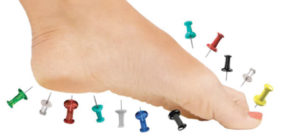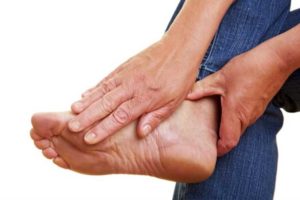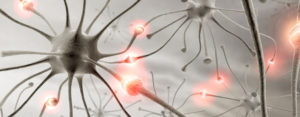Peripheral Neuropathy-Types, Causes, Symptoms And Treatments
Exactly What Is Neuropathy?
Neuropathy simply means “nerve disease or nerve damage.” The word neuropathy stemmed from 2 parts: “Neuro”, which describes the nerve and “pathy”, which means disorder. Nerve issue or neuropathy usually takes place when the external sheathing or the protective coverings (myelin) of the cells of the nerve deteriorate. Without this security, the electrical signals will not be correctly transferred. This is very much like removing the covering off of the electrical wires in the home.
As the nerve problem becomes worse, the nerves either lose their capability to send info or they begin sending out incorrect signals. The first causes numbness (in the area that is not getting the info) while the latter causes tingling and pain.
Neuropathy happens where the nerves have actually sustained adequate too much injury that there is visible feeling of numbness, tingling or pain.
Individuals who have serious peripheral neuropathy might experience severe discomfort and might have trouble walking, in some cases needing the support of a walking stick or wheelchair might be required for them to be able to properly walk around.
Individuals who have peripheral neuropathy typically experience signs on both sides of their bodies. The experiences can be either consistent or periodic. In some cases they might not be visible, while at other times they might be very annoying.
Not just can peripheral neuropathy be physically uncomfortable, it can likewise have an extensive impact on lifestyle. The natural impulse to prevent or decrease discomfort can stop individuals from doing their routine daily activities. This can trigger a lot of stress and can cause major depression like severe psychological issues that can make life appear entirely discouraging.
Types of Nerves Where Damage Can occur
Cranial: These are the nerves that go from the brain to the ears, mouth, eyes including other places in the head.
Peripheral: These are the nerves that go from the spine to the legs, arms, feet and hands. This one is the form of damage that is most common.
Central Nerves: They are located in the spinal cord and brain.
Autonomic: These ones are the nerves that go from the spine to the sex organs, heart, bladder, lungs, stomach and intestinal tracts. When there is damage in any of these nerves, the organ involved with will not be able to function properly.
The problem neuropathy triggers depends upon the kind of nerves that are damaged. This could be which might be the sensory nerve (controls feelings), motor nerve (that allows power and movement) or the nerves that control the system of the body, which is the autonomic nerves.
Neuropathy has numerous causes, and any one or varieties of any of the 3 types of nerves can fall victim at any point in time or once. Mononeuropathy describes the damage to a single nerve and Polyneuropathy implies the damage to a number of nerves.
When it comes to “peripheral” neuropathy, this means that the illness is striking nerve tissue that is located outside the brain and spine. This consists of injury that happens to motor nerves (the nerves that goes to the muscles), sensory nerves (nerves from the skin), or/and the autonomic nerves ( the nerves that goes to the internal organs.
Peripheral Neuropathy
Damage to the nerves interrupts the instructions given to the body parts, which is being sent from the electrical signals from the brain when they travel through the nerves. This is what causes peripheral neuropathy and its different signs.
It is approximated that more the 20 million of Americans struggle with this disease. It can take place at any age, however is more typical amongst older grownups.
 Facts About Neuropathy
Facts About Neuropathy
- Neuropathy is a problem that results from the variety of various medical conditions.
- Physical injury, repeated trauma, infection, metabolic issues and direct exposure to toxic substances and some types of drugs can all result in neuropathy.
- A lot of cases of neuropathy are discovered in individuals who have diabetes.
- Around 50% of individuals that have their neuropathy from diabetes do not usually experience the signs and symptoms.
- Checking for neuropathy is a regular part of diabetes care.
- Although there is no treatment for diabetes, but the underlying causes of the disease can be targeted.
Peripheral neuropathy can arise from terrible injuries, infections, metabolic issues, acquired causes and direct exposure to contaminants. Among the most typical causes is diabetes mellitus.
Symptoms Of Peripheral Neuropathy
The signs of peripheral neuropathy generally take place in the feet and/or hands:.
- Numbness/insensitivity to discomfort or temperature level
- Severe level of sensitivity to touch
- Burning sensation, prickling and tingling
- Sharp cramping/pains
- Loss of balance
- Loss of reflexes
- Weakness in the Muscle weak
- Visible changes in walking posture
- Increase in urination times per day
- Impotence
- Heat intolerance and sweating
- Gastrointestinal problems, bladder and bowel
- Changes that occurs in the blood pressure that causes light-headedness
 Possible Causes Of Neuropathy
Possible Causes Of Neuropathy
-Alcohol addiction
– Autoimmune illness
– Diabetes
– Direct exposure to toxins
– Some Medications.
– Infections
– Inherited medical conditions
– Pressure on the nerve or trauma from accidents
– Tumors that grow on the nerves
– Bone marrow diseases
– Vitamin shortages, especially B vitamins
– Recurring movement (certain jobs)
– Family history of neuropathy
Medications For The Treatment Of Peripheral Neuropathy
Medications used to relieve neuropathy symptoms or other conditions that are connected to peripheral neuropathy includes
- Painkillers (as prescribed by the doctor) because medications such as Conzip, Oxycontin, Roxicodone and others can result in addiction.
- Anti-seizure medications such as Neurontin, Lyrica, gralise and so on might ease nerve discomfort. But their side effects include dizziness of drowsiness.
- Topical treatments like Lidocaine and Capsaicin cream from hot peppers. Application of the cream usually causes irritation on the skin, which reduces later but some individuals just can’t stand it.
- Antidepressants, such as doxepin, amitriptyline, and Pamelor, have actually been discovered to assist in eliminating pains by disrupting chemical procedures in the brain and spine that usually results in the pains.
Therapies
Numerous procedures and therapies may assist in relieving the symptoms and signs of peripheral neuropathy.
- Transcutaneous Electrical Nerve Stimulation (TENS). Electrodes put on the skin provide a mild electrical current at differing frequencies. TENS must be made use of for thirty minutes every day for a month.
- Plasma Exchange And Intravenous Immune Globulin. These are treatments that are very good at assisting in the reduction of the activity of body immune system, may benefit individuals with some specific inflammatory conditions.
Plasma exchange includes removing the blood from the body; removing the protein and antibodies that are in the blood and then returning the blood back into the body. Immune globulin therapy involves an individual receiving much quantity of proteins. The proteins work as antibodies.
- Physical therapy helps to enhance the movements of the body. This is mostly useful in case of muscle weakness. There might also be need for a cane, wheelchair, foot or hand braces.
- Surgical treatment. If you have actually neuropathies that has been brought on by pressure on nerves like the pressure that is cause by tumors, such individual might need to go through surgical treatment in order to lower the pressure.
Alternative Therapies/Medicines
Some individuals with peripheral neuropathy sometimes attempt complementary remedies to this condition for relief. Although, these methods are yet to be properly studies by scientists, but they have been able to show some promises over the years.
- Acupuncture involves the insertion of needles into living tissues. It is used majorly for remedial purposes. Doing this into different parts of the body may lower the symptoms of peripheral neuropathy. There might be need for you to go through many sessions before you can be able to start seeing visible improvements. Acupuncture is normally thought to be safe when carried out by a qualified specialist that makes use of sterilized needles.
- Alpha-lipoic acid has actually been made use of several times for the treatment of peripheral neuropathy in Europe for many years. When it comes to the use of alpha-lipoic acid, there is need for you to discuss it with your doctor. This is because Alpha-lipoic acid can affect the blood glucose levels. It also has other side effects which includes skin rash and indigestion.
- Herbs, may help in reducing neuropathy discomfort in individuals with diabetes. Some herbs sometimes disrupt medications, so go over the herbs you’re thinking about and inform your doctor about it. Example of these herbs includes primrose oil.
- Amino acids. Amino acids, such as acetyl-L-carnitine, may benefit individuals who have diabetes or actually gone through chemotheraphy. Adverse effects may consist of queasiness and throwing up.

0 Responses